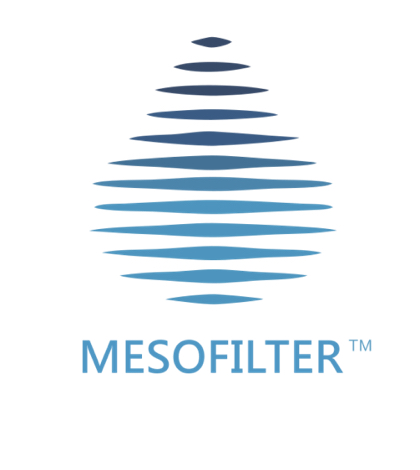Mesofilter Inc., a San Jose-based developer and manufacturer of innovative nanotechnology to reduce and filter heavy metals in water, recently announced that NSF International, the global public health organization, has certified that Mesofilter’s new product, the NanoNose Water Purifier, filters water to reduce arsenic to below the health advisory levels set by the U.S. Environmental Protection Agency (EPA) and World Health Organization (WHO). NSF has also certified that the first drinking water pitcher to reduce arsenic to NSF/ANSI 53 – Drinking Water Treatment Units – Health Effects, an American National Standard for drinking water treatment units. Toxic lead and mercury in water can also be removed by the new water filter technology.
“It has been a great challenge for conventional technologies to treat arsenic in drinking water as current solutions usually require complex chemical processes and toxic waste disposal post-treatment,” Dong added. “Thousands of engineers and scientists around the world are actively researching simple and affordable methods or materials to solve this global problem.” The Mesofilter arsenic filtration technology was researched, developed, and refined over a period of 12 years at the University of Hawaii with the collaboration of China Medical University in Shenyang, China. “Our technology solution came in a burst of an epiphany – the nose as the model for filtering out carcinogenic substances in a simplified way. We will continue to innovate the next-generation water filtration technology and products for personal and large-scale industries such as soil remediation, groundwater cleaning, nuclear wastewater cleanup, and air pollution caused by coal mining in our Silicon Valley headquarters.”
More than 200 million people globally could be habitually exposed to arsenic in drinking water according to WHO. Such long-term exposure to arsenic through drinking water sources can lead to chronic arsenic poisoning. Although most arsenic enters the drinking water supply either from natural deposits in the earth or from industrial and agricultural pollution, it is a naturally abundant element of the earth’s crust.
Arsenic is used in industry and agriculture and for other purposes. It also is a byproduct of nonferrous metal smelting, mining, and coal burning. It can appear in drinking water municipal systems but most often in private wells. The Agency for Toxic Substances and Disease Registry (ATSDR) has ranked arsenic as the highest substance priority on its list for more than 16 years.
Arsenic poisoning is usually observed in the skin, including pigmentation changes, skin lesions, and hard patches on the palms and soles of the feet. Long-term exposure can cause a variety of cancers including skin cancer and cancers of various organs including the lungs, bladder, liver and other cancers. High concentration arsenic can cause abdominal pain, vomiting and diarrhea; secondary complications can include numbness and tingling of the extremities, muscle cramping and even death in extreme cases. The International Agency for Research on Cancer (IARC) defines arsenic as a Group I known carcinogen that can induce other noncancer effects; no bodily system is free from potential harm.
The EPA and WHO set an arsenic maximum contaminant level (MCL) for public water supplies at 0.010 mg/L. This is equivalent to 0.010 parts per million (ppm), or 10 micrograms/liters (µg/L), or 10 parts per billion (ppb). The NanoNose Water Purifier has been certified to NSF/ANSI 53 – Drinking Water Treatment Units – Health Effects to reduce pentavalent arsenic up to 50 ppb to at or below 10 ppb.
Whereas heating and boiling water during an arsenic contamination will not remove the arsenic, research indicates that arsenic concentrations can actually increase slightly as the water is boiled. Additionally, the use of chlorine (bleach) disinfection will not remove arsenic from drinking water. When pentavalent arsenic is detected in drinking water the NanoNose Water Purifier and the Midea-NanoNose filtration cartridge can offer consumers a simple solution.
“NSF International continues to protect and improve public health by certifying products worldwide that help improve the quality of drinking water,” said Clif McLellan, Vice President of Water Systems at NSF International. “NSF’s certification of the NanoNose Pitcher Filter System and Midea-NanoNose filtration cartridge to the NSF/ANSI 53 means consumers now have a verified a solution to reduce pentavalent arsenic (or arsenic V) in their drinking water to 10 ppb which is set by the EPA and WHO.”
 California Water News Daily Your Source For Water News in California
California Water News Daily Your Source For Water News in California


